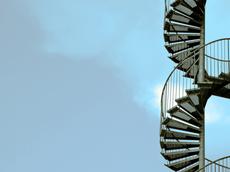THE Ranking: ETH Zurich in 15th place
The Times Higher Education World University Ranking (THE) 2010 was compiled based on new criteria and methods, which makes it difficult to compare with last year’s ranking. According to the new evaluation, ETH Zurich has leapt from 20th to 15th.

As
controversial as the rankings are, every year the universities watch the
results with baited breath. In 15th place in the new THE World
University Ranking, ETH Zurich was once again voted the best university outside
the USA and Great Britain – and is right up there with the big fish. After coming
18th in the Quacquarelli Symonds (QS) Ranking on 8 September, the
new ranking confirms this top position.
Changes at the top
There
have been notable changes in the top ten.
The top five are all from the USA: Harvard University took the top spot,
followed by the California Institute of Technology (Caltech), the Massachusetts
Institute of Technology (MIT), Stanford, and Princeton University.
With
the exception of Harvard University, the other four are all newcomers to the
top five. Stanford, for instance, was way down in 16th in the 2009
THE-QS Ranking. The two British universities of Oxford and Cambridge shared 6th
place. Compared to eight in 2009, there were only half as many British
universities in the top 30 this time around. EPF Lausanne dropped from 42nd
to 48th compared to last year; however, it did come 32nd
in the QS Ranking of 8 September. The University of Zurich was 90th,
Basle 95th.
This
year the THE was awaited with particular anticipation. The deputy editor of the
British university magazine “Times Higher Education”, Phil Baty, had admitted
to the press that the previous method was flawed, especially in the reputation
surveys. The rankings are now based on new themes and weighted differently.
Moreover, the THE has found a new partner in Thomson Reuter for the analysis of
the expert data and general data collection. This year, the THE and QS
rankings, which used to appear together, went their separate ways. The QS
Ranking published on 8 September adopted a similar methodology to the former
THE-QS World University Ranking (see ETH Life article from 8 September 2010).
According to Urs Hugentobler, who is responsible for evaluating the rankings in
ETH Zurich’s controlling department, a direct comparison of the new THE
Rankings with the old THE-QS World University Ranking or this year’s QS Ranking
shows that the new ranking focuses much less on the reputation surveys and
parameters like research funds or doctorates awarded are normalised through the
size of the university. “What’s more, at almost 32.5 percent the most heavily
weighted indicator “citation impact” is calculated considerably more carefully
than in previous rankings. This means the citation rate was normalised through
the different departments”, says Hugentobler.
Thirteen performance indicators instead of six
Due to the growing influence and scope of the rankings, there was a need for improvement, states the THE website. In contrast to the previous evaluation methods, the THE defined thirteen performance indicators instead of the six used up to now. These were in turn divided into five main categories and weighted in percentages: teaching (30%), citation rate (32.5%), research (30%), internationality (5%), and the procurement of external funding (2.5%). The THE is convinced that the new method is the most sophisticated in the world as it reflects the three core tasks of a university: teaching, research and knowledge transfer. Just how successful the new method actually is, however, will only be revealed by follow-up analyses and more THE Rankings.
Executive Board delighted
ETH-Zurich’s president Ralph Eichler is extremely happy with the good results in the latest ranking. It is further confirmation of the excellent reputation ETH Zurich enjoys in the science world. We shouldn’t exaggerate the significance of university comparisons as they never cover all the aspects that are relevant for a university. However, it is important to analyse the results and draw the right conclusions from them. “The result is very gratifying and should be an incentive for us to become even better”, says Ralph Eichler.







READER COMMENTS